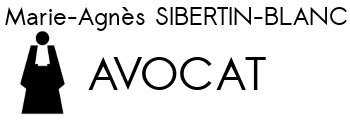Best Annulment Lawyers in Clermont-l'Herault
Share your needs with us, get contacted by law firms.
Free. Takes 2 min.
Free Guide to Hiring a Family Lawyer
List of the best lawyers in Clermont-l'Herault, France
About Annulment Law in Clermont-l'Herault, France
Annulment in Clermont-l'Herault, as in other parts of France, is a legal procedure that declares a marriage null and void as if it never legally existed. Unlike divorce, which ends a legally valid marriage, annulment retroactively declares the marriage did not meet the legal criteria to be valid from the start. French law provides for both religious and civil annulments, but only civil annulments have legal standing. It's crucial to understand the specific conditions under which an annulment is granted in this region.
Why You May Need a Lawyer
Seeking a lawyer for annulment cases is essential for navigating complex legal requirements and ensuring all necessary conditions are met for the annulment to be approved. Common situations where legal help might be crucial include cases of forced marriage, bigamy, or if one spouse was already married. Also, if consent was obtained under duress or fraud, or one party was incapable of understanding the significance of marriage due to mental incapacity, a lawyer can provide essential guidance.
Local Laws Overview
In Clermont-l'Herault, the legal framework surrounding annulment is governed by the French Civil Code. An annulment can generally be pursued if certain conditions invalidate the marriage contract, such as mistakes concerning the identity of the spouse, lack of free consent, or if one of the spouses was not of legal age or capable of consent. Only civil annulments hold legal effect, and the process involves filing a petition in the court, where a judge will decide based on the evidence provided.
Frequently Asked Questions
What is the difference between annulment and divorce?
An annulment declares that a marriage is null and void as though it never existed, while a divorce legally ends a valid marriage.
What are the grounds for annulment in Clermont-l'Herault?
Common grounds include lack of consent, mental incapacity, prior existing marriage, fraud, or duress.
How long does the annulment process take?
The duration can vary, but it typically takes several months to a year, depending on the court's schedule and the complexity of the case.
Can annulment affect child custody or property division?
Yes, an annulment can impact decisions regarding child custody and property, often requiring separate legal actions for these matters.
Is there a time limit to file for an annulment?
Yes, the time limit depends on the grounds for annulment. It's advisable to consult with a lawyer promptly to avoid missing deadlines.
Do both parties need to agree to an annulment?
No, consent is not required from both parties for annulment, but one party must present valid legal grounds.
Can a religious annulment be recognized legally?
In France, only a civil annulment has legal standing, though a religious annulment may be significant for personal reasons.
How is an annulled marriage treated legally?
An annulled marriage is treated as though it never existed, but arrangements regarding children and property remain necessary.
What legal documents are needed for annulment?
Documents typically include evidence of marriage, grounds for annulment, and other relevant legal documents presented in court.
How can a lawyer assist in the annulment process?
A lawyer provides advice on legal rights, drafts necessary documents, represents the party in court, and ensures all legal requirements are satisfied.
Additional Resources
For more information or assistance, individuals can reach out to the local mairie (town hall) or the Tribunal de Grande Instance, which handles annulment cases. Organizations such as Union Départementale des Associations Familiales (UDAF) can offer guidance, and the French government’s website provides comprehensive legal information.
Next Steps
If you believe an annulment is necessary, it's important to consult with a qualified attorney experienced in family law. Begin by collecting all relevant documents related to your marriage and any evidence supporting your claim for annulment. Contact a legal practitioner who can guide you through the process, help navigate legal requirements, and represent your interests in court.
Lawzana helps you find the best lawyers and law firms in Clermont-l'Herault through a curated and pre-screened list of qualified legal professionals. Our platform offers rankings and detailed profiles of attorneys and law firms, allowing you to compare based on practice areas, including Annulment, experience, and client feedback.
Each profile includes a description of the firm's areas of practice, client reviews, team members and partners, year of establishment, spoken languages, office locations, contact information, social media presence, and any published articles or resources. Most firms on our platform speak English and are experienced in both local and international legal matters.
Get a quote from top-rated law firms in Clermont-l'Herault, France — quickly, securely, and without unnecessary hassle.
Disclaimer:
The information provided on this page is for general informational purposes only and does not constitute legal advice. While we strive to ensure the accuracy and relevance of the content, legal information may change over time, and interpretations of the law can vary. You should always consult with a qualified legal professional for advice specific to your situation.
We disclaim all liability for actions taken or not taken based on the content of this page. If you believe any information is incorrect or outdated, please contact us, and we will review and update it where appropriate.








